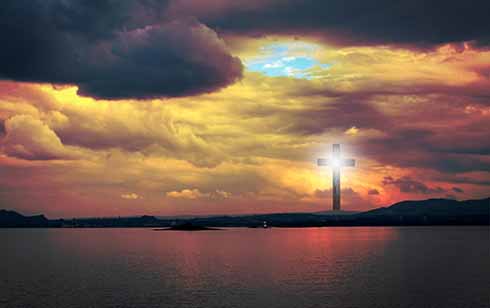 The loss this year of those rituals and traditions that mark Easter also bring to light the original depths of the Easter story.
The loss this year of those rituals and traditions that mark Easter also bring to light the original depths of the Easter story.
For many of us this year the celebration of Easter Sunday this year will feel more like Lent or Passion Week. That will be the case for all our fellow Australians, too. There will be no football, no concerts, no interstate or international travel, few schools to have holidays from, no family gatherings. The atmosphere, too, will be one of constraint, not freedom. Fear and anxiety about the future will stay close to us. We are all captive to coronavirus.
These restrictions are hurtful, but they may also open us to the depths of the story of the first Easter.
In the Gospel stories Easter Sunday dawns in a world remarkably like our own this year. There is nothing to celebrate. Jesus’ world has been shut down; his disciples are hiding away in locked rooms in fear that they will be the next to be arrested; the only people in the streets apart from the police are a couple of Jesus’ friends, mostly women. Their love, which has overcome their fear, draws them out to visit his tomb.
Hope temporarily lost
As Easter Sunday dawns his followers have not only lost a friend and a leader. They have also lost the hope that they placed in him, and the reason for following him. They walked with him because they believed that God would act through him to free his people. The crucifixion of Jesus had proved that belief to be absurd and had taken away any grounds for hope. The leaders of his own people had disowned him. The Roman authorities had done what they were expert at. They killed Jesus slowly outside the city, leaving him nailed naked and writhing to a timber pole, stripping away his humanity and any hope that he would bring freedom. For his disciples Easter Sunday dawned in a desert.
The Gospel stories at Easter time are not just about celebration. They describe in different ways the disciples’ transition from despair at the death of a friend and of their own hopes to joy and the realisation that God has freed them though his death. Disciples cowering behind locked doors find Jesus present with them. Disciples leaving Jerusalem in grief find that he has been walking with them. Mary Magdalene goes to the tomb in grief to anoint his corpse finds him waiting for her unrecognised outside the tomb. These stories all point to God’s presence and victory in what seemed to be a crushing and final defeat.
God’s love is with us
In a stirring passage, Paul begins with the words ‘Nothing can separate us from the love of God’. He goes on to list the human catastrophes that might be expected to do so. He was confident because he believed so strongly that God had raised Jesus from the dead.
Today he might add to his list all the experiences of coronavirus – the sickness, death, isolation, impoverishment and loneliness that it has brought with it. For him the raising of Jesus meant that beyond these things lay a hope and love stronger than death.
This year, as we contemplate all the things that could separate us from hope, Easter invites all of us to ask what matters to us deeply enough to sustain us in the face of loss and death. It invites us, too, to ask for a deeper faith and hope.